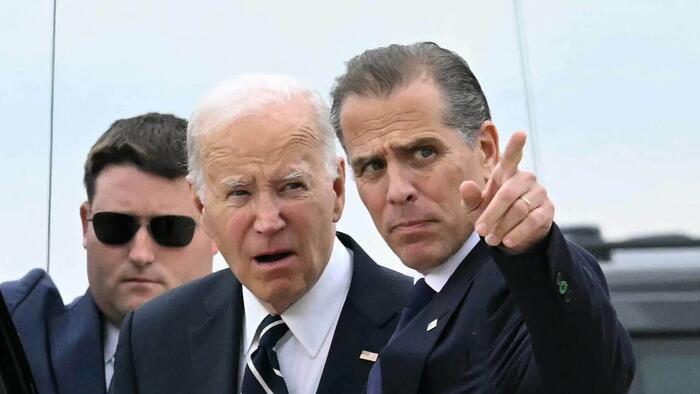In a scathing critique of President Joe Biden’s administration, author Bronson Winslow argues that Biden has presided over the most anti-Second Amendment regime in U.S. history, creating an environment where Americans face significant legal risks concerning firearm ownership. Winslow highlights a glaring hypocrisy: while Biden has aggressively pursued gun control measures, including restrictions on who can own firearms and how they can be carried, his son, Hunter Biden, recently received clemency for multiple firearm felonies. This juxtaposition underscores a perceived double standard; as millions of law-abiding gun owners grapple with legal repercussions from these stringent policies, Hunter has evaded accountability for his actions, raising questions about Biden’s integrity and leadership.
The Biden administration’s approach to gun control has seen an alarming expansion of regulatory powers, particularly through agencies like the Bureau of Alcohol, Tobacco, Firearms and Explosives (ATF). Winslow asserts that Biden’s policies have effectively criminalized millions of responsible gun owners, turning them into felons overnight due to arbitrary regulatory actions. Proposals such as assault weapon bans, red flag laws, and universal background checks have been criticized as direct threats to the Second Amendment, effectively impeding Americans’ rights to bear arms. Notably, Winslow points to a tragic incident involving the ATF that culminated in a fatal raid, suggesting that the agency’s unchecked authority and aggressive tactics can have fatal consequences, illustrating the dangerous implications of Biden’s regulatory regime.
Hunter Biden’s recent legal issues and the resulting clemency have sparked outrage among gun owners and conservatives who see his treatment as emblematic of a broader trend of favoritism. Winslow argues that Biden’s rationalizations for his son’s pardon—claiming it was a product of “unfair and selective” prosecution—reveal a fundamental injustice. This scenario begs the question of why similar clemency would not extend to the millions of Americans facing punitive measures under the very laws that Biden has championed. The author’s critique implies a failure of Biden to uphold the principles of fairness and justice for all citizens, a cornerstone of democratic governance.
Biden’s historical stance on gun control is also scrutinized by Winslow, who notes that Biden was not always a vocal advocate for anti-gun measures. The shift in Biden’s rhetoric coincided with his presidential campaign in 2020, raising questions about the motivations behind his current policies. This inconsistency has led to speculation regarding his true commitment to the Second Amendment and suggests that his political alignment has shifted to resonate with a more radical leftist agenda. Winslow urges Biden to reclaim his earlier stance and advocate for the rights of all gun owners rather than catering to the extremes of his party.
In a call for redemption, Winslow posits that Biden has a unique opportunity to improve his standing with the American public. By extending clemency to all law-abiding gun owners adversely affected by his administration’s policies, Biden could demonstrate a commitment to fairness that contrasts sharply with the preferential treatment given to his son. A blanket pardon would not only help restore trust among the millions suffering from his administration’s overreach but also position Biden as a leader capable of acknowledging and correcting past mistakes.
Ultimately, Winslow’s message is clear: the narrative surrounding Biden’s gun control policies and his son’s legal reprieves is one of hypocrisy and selective justice. By failing to stand up for the rights of average citizens, Biden risks alienating a significant segment of the population who feel threatened by his administration’s increasingly repressive tactics. A proactive step in granting widespread clemency could serve as a pivotal moment for Biden—one that could not only mend broken trust but also reflect a fundamental acknowledgment of his failure to uphold the very principles of justice and equality that he swore to protect as President. The onus is now on Biden to choose a path that aligns with these foundational ideals or risk further alienation from the American people.

